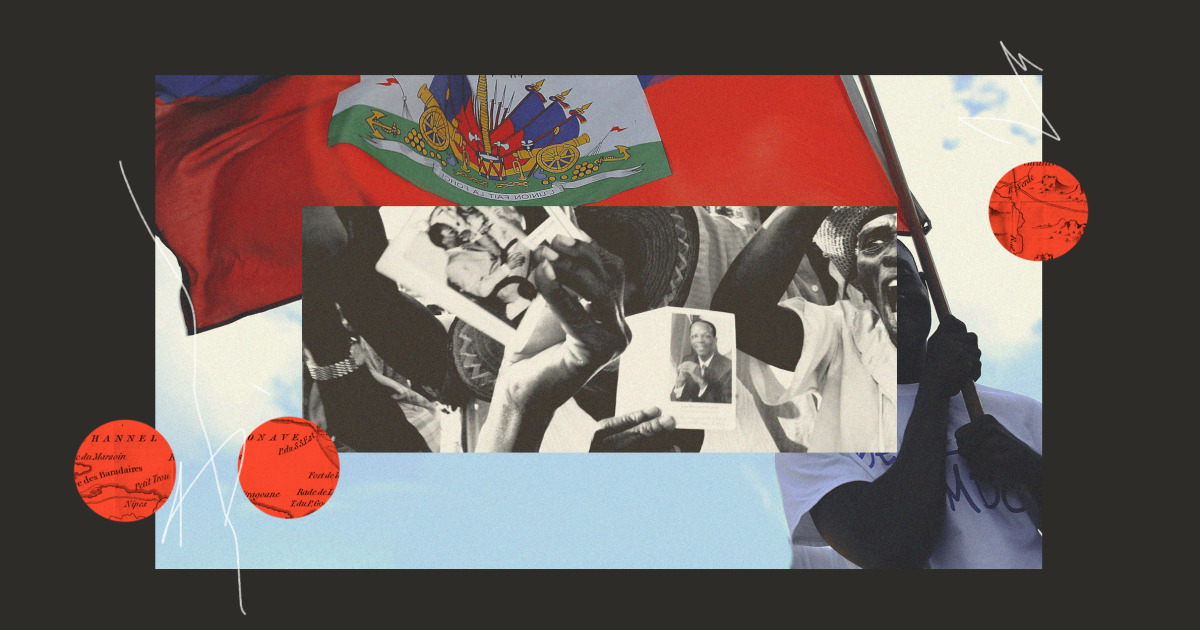
Johnny Celestin generally believes that Haiti, which continues to be under heightened violence from armed groups and gangs, must re-establish order on its own.
“My heart is against foreign intervention,” said Celestin, chair of the nonprofit organization Konbit for Haiti. “I firmly believe in Haiti’s agency.”
But now, with armed militias creating an unprecedented level of instability amid a weekslong leadership void, Celestin and others say foreign intervention may be necessary.
“I guarantee you,” Celestin said, “that people who are losing their homes, losing their lives, are not in a space where they’re saying, ‘Let us die because we’re so proud. We don’t want any foreign help to help us.”
Now living in New York City, Celestin is a native of Haiti and has lived there on and off for most of his life. He returned to Port-au-Prince in 2010 and traveled extensively throughout the country for 10 years.
For generations, his beleaguered Caribbean nation has sought to achieve home-grown stability but, following the assassination of its democratically elected President Jovenel Moïse in 2021, armed groups took increasing control of the country’s capital. The violence that immediately ensued put its citizens at yet another crossroads. Some Haitians say their country will only suffer further if foreign intervention is allowed, while others say international support is necessary for Haiti to overcome its political and humanitarian crises.
Attempts have been made in the past to foster solutions at home. For example, the year Moïse was killed, a group of Haitian and non-Haitian religious leaders, women’s rights groups, lawyers, humanitarian workers and more formed the Commission to Search for a Haitian Solution to the Crisis. The commission proposed a two-year interim government with oversight committees tasked with restoring order, eradicating corruption and establishing fair elections. The group is still working to make its plan a reality.
But as violence has ratcheted up in the last several months, the United Nations’ latest plan — drafted by the United States and Ecuador — is to send Kenyan troops in to police Haiti. The plan has drawn criticism from those who say Kenyans don’t speak Kreyòl or French and there is evidence of human rights abuses in the Kenyan army. The plan is currently on hold, but it falls in line with Haiti’s history, which is riddled with intervention from other nations, especially the U.S., with little evidence that these efforts have contributed to long lasting peace and stability in the country.
Celestin, like other Haitians, said he is inherently against foreign intervention as it has existed, but understands that it may be necessary to stem the tide of violence and poverty in Haiti. However, he said, any foreign intervention should support Haitians and their efforts rather than holding complete control over the country with no input from its citizens.
“The fight that needs to take place to save Port-au-Prince and to save Haiti, has to be a fight that is led by Haitians. I believe we have that capacity, if those folks feel they have backup … Once they clear an area, there’s got to be another force that can come in and ensure that they control it. And this is what I believe the international force can do.”
Monique Clesca of Port-au-Prince agrees that it is important for Haitians to work with foreign actors, but it must be on their own terms.
“There is an aspect of sovereignty that’s extremely important,” said Clesca, a member of the Commission to Search for a Haitian Solution to the Crisis. “Yes, we need to work with different partners; yes, we will need help; but it is not them who will dictate what kind of help we should get and when we should get it.”
However, Haitian scholars like Jemima Pierre have condemned the foreign intervention throughout Haiti’s history. Pierre, a professor at the University of British Columbia, Vancouver, said foreign intervention, including from the U.S., is partially to blame for Haiti’s turmoil.
“What intervention means for Haiti, what it has always meant, is death and destruction,” Pierre said. “What’s the definition of insanity? Doing the same thing over and over again, and expecting a different result.”
Destructive foreign intervention colors Haiti’s history as an independent nation
Haitians’ skepticism about outside interference dates back to the birth of the country.
In 1791, Haitians began a revolt against slavery. They ousted their French masters and Haiti obtained its independence in 1804. The story was one of heroism and triumph, until France issued the newly freed Black country an ultimatum: pay 131 million francs in reparations to its former masters or face consequences. The new country was forced to pay what would be at least $21 billion in today’s dollars to avoid war and further economic restraint and to maintain its independence.
The U.S., afraid the revolt would inspire its own enslaved people, did not recognize Haiti and worked to choke the country economically and diplomatically. It took the country more than 100 years to pay the debt.
President Woodrow Wilson ordered the U.S. Marines to invade Haiti after the assassination of its president in 1915, citing concern about political unrest in the region. The U.S. implemented a government that it controlled, established segregation, and killed thousands of people during the 19-year occupation, according to The New York Times. Afterward, the U.S. controlled Haiti’s public finances, using a massive amount of the country’s income to repay debts to itself and France, NPR reported.
The rise, fall and rise of President Jean-Bertrand Aristide
Haiti’s history of economic and diplomatic oppression went largely ignored by France and other powerful nations in the centuries that followed, until Jean-Bertrand Aristide rose to power. Aristide became Haiti’s first democratically elected president in 1990. When four years later he was ousted in a military coup, the U.S. sent 20,000 troops to restore order in the country. Back in power, Aristide was vocal in his demands that France right the reparation wrongs and repay the money it had taken from Haiti for centuries.
In 2004, he was overthrown again. The U.S. encouraged him to step down this time and helped him escape with troops from France, Canada and Chile. However, Haitians liked Aristide and he long remained one of the most popular political figures in the country. Many believe that the international support to remove Aristide was prompted by his demands for reparations from France.
“What’s going on in Haiti is a flare-up of a situation that’s been going on for 20 years, and that situation is a complete takeover of Haitian society and Haitian political systems by foreign powers. People think this is hyperbole, but it’s not,” Pierre said. “It’s 20 years ago that the U.S., France and Canada funded a coup d’état against Haiti’s democratically elected president, Jean-Bertrand Aristide.”
French and Haitian political figures have said that France, troubled by Aristide’s influence, began to work with his local opponents and the U.S. to remove him from power, The New York Times reported. France and the U.S. have denied these allegations.
Once Aristide was out, the United Nations implemented a security effort led by the Brazilian military, known as MINUSTAH, from 2004 to 2017 — and then a small operation followed that lasted until 2019. This mission has been criticized and known for allegations of murders, rape and other atrocities, according to Harvard Law School’s human rights clinic. Amid all this, Haiti endured a devastating earthquake in 2010 that killed about 220,000 people, and another deadly earthquake in 2021. A cholera outbreak that killed at least 10,000 after the 2010 earthquake was traced back to U.N. peacekeepers sent from Nepal, according to The Washington Post.
Matters only grew worse as Haiti struggled to regain its footing after the earthquakes, and as elections were repeatedly postponed following Moïse’s assassination in 2021.
The U.S. and several other nations supported Ariel Henry, who had been prime minister under Moïse, to temporarily replace Moïse as the country’s leader. The unelected prime minister is deeply unpopular in Haiti, and this only worsened as he delayed the presidential election. Armed groups, already active in Port-au-Prince, dialed up the violence in the last year.
These groups have been present in the country for decades alongside the establishment, with many politicians even using them to do their bidding, including everything from intimidating the opposition to collecting votes. As Henry continued to delay a presidential election, the rebel forces engaged in increasingly daring acts and have now taken control of at least 80% of the capital, according to a United Nations estimate.
Meanwhile, Haitians like Dave Ali Fils-Aimé have committed themselves to the country’s progress by launching programs that connect with and support Haitians directly. In 2013, Fils-Aimé founded Baskètbòl pou Ankadre Lajenès (Basketball to Uplift the Youth) to engage with children through the sport and educate them. The program operates in Cité Soleil and Martissant, two Port-au-Prince neighborhoods racked with violence from armed groups, and, according to Fils-Aimé, it serves as the perfect tool for keeping children from joining the armed groups terrorizing Port-au-Prince.
In the past months, Baskètbòl pou Ankadre Lajenès has had to cut down its operations as the violent groups have closed in on their headquarters. For now, the organization is only working with children in close proximity to its headquarters. Still, Fils-Aimé says, it’s organizations like these that represent the self-determination and community that will be necessary to pull Haiti out of its persistent crises.
“The government, because of its lack of capacity and high levels of corruption, they’re not investing in the youth as they should. So it’s incumbent upon organizations like ours to provide that support,” Fils-Aimé said. “We have some youth who started with us back in 2013, 2014, who are now in their final years of university. That’s a youth whose life you’ve saved by providing them with the opportunity to be part of this organization.”
For more from NBC BLK, sign up for our weekly newsletter.

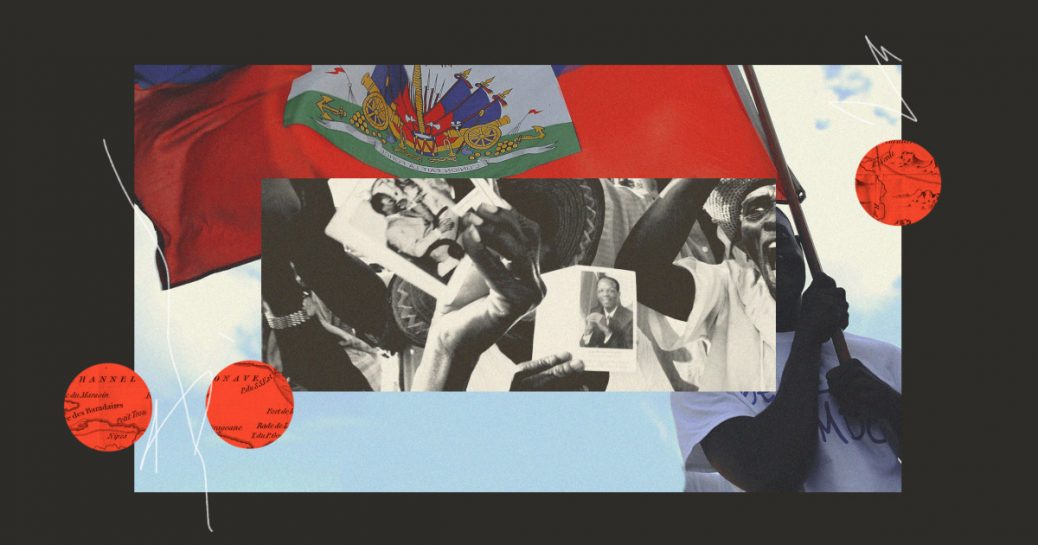



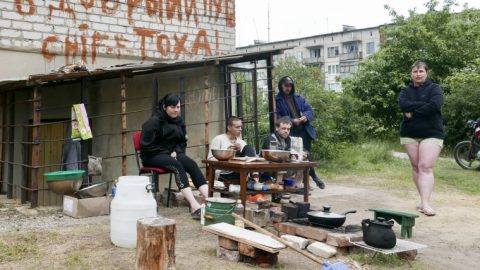
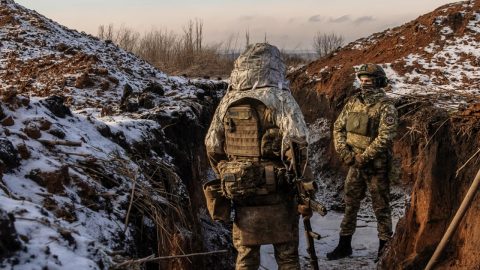

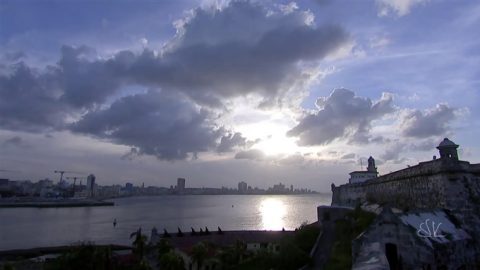
Recent Comments